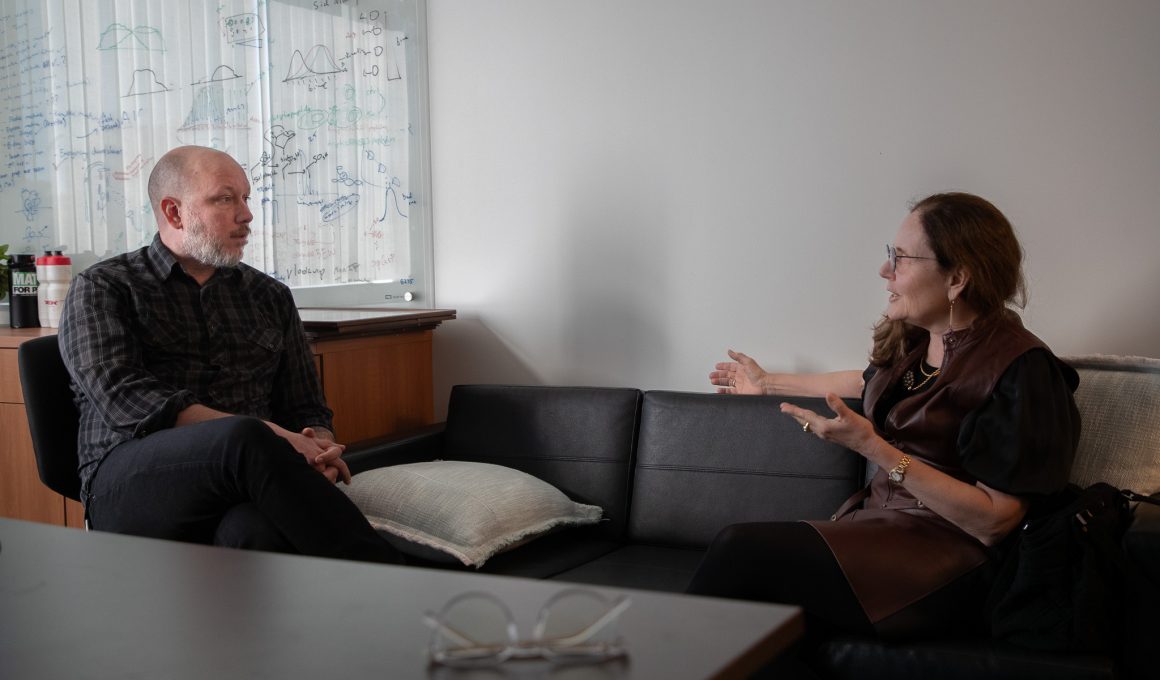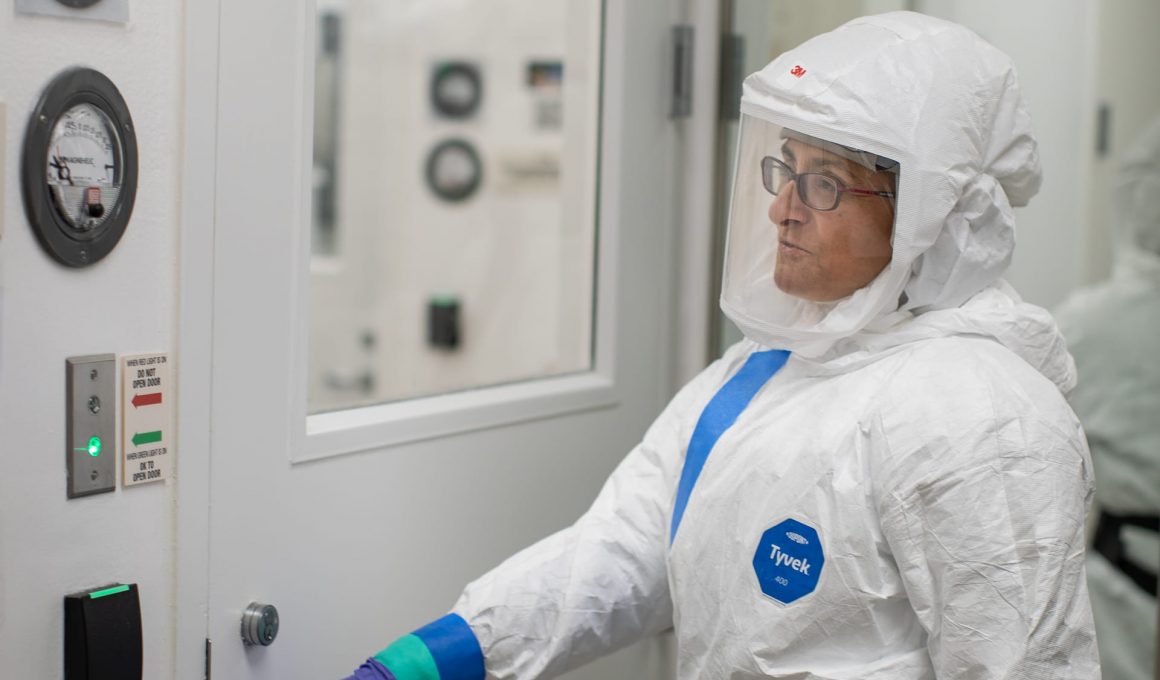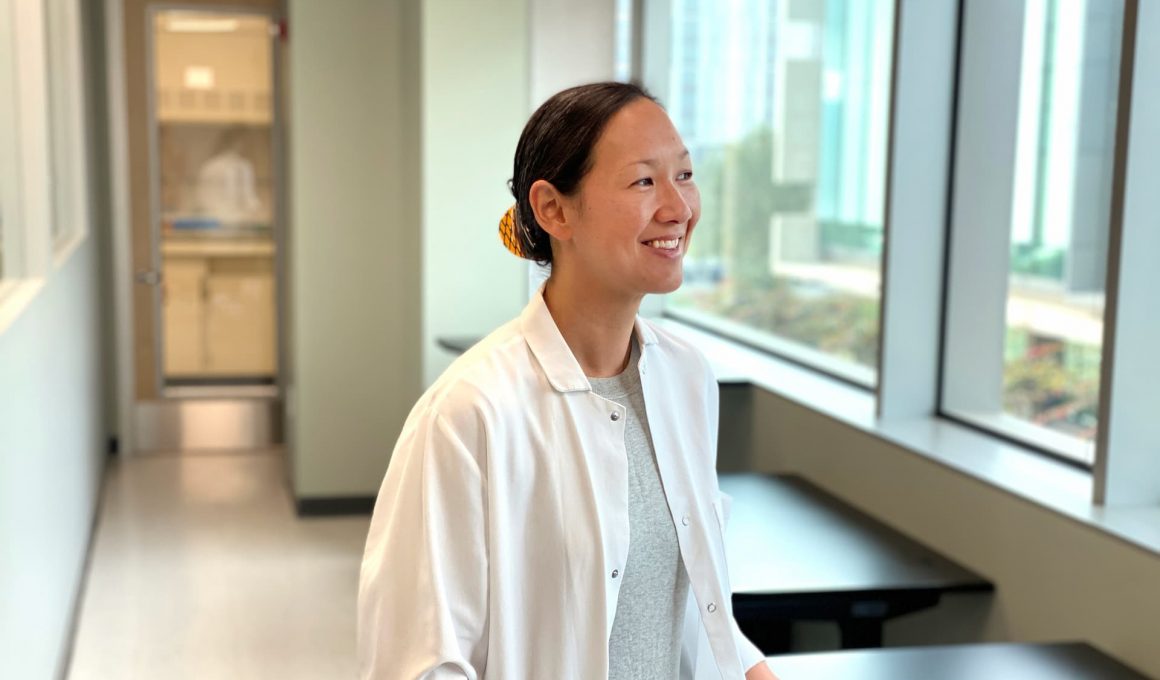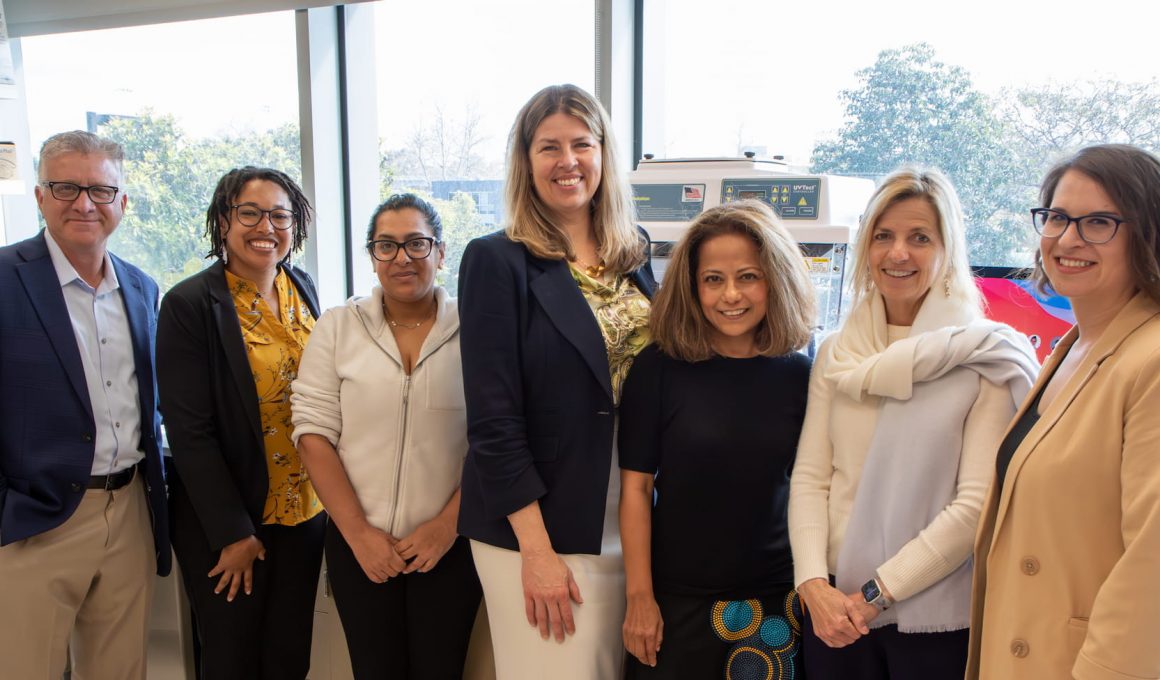Scientists at La Jolla Institute for Immunology (LJI) lead critical research to understand how pathogens infect the body—and how our immune system fights back. Here, Dr. Saphire discusses the Institute’s leadership in pandemic preparedness research.
Question: What scientific mysteries do we need to solve as we prepare for future pandemics?
Dr. Saphire: No one knows what virus will cause the next pandemic, but we do know that the human immune system will be called upon to respond. Understanding how to draw out the most effective, long-lasting, and broad immune responses is the most important approach humanity can take.
In LJI’s Center for Vaccine Innovation, our scientists have come together to reveal how immune “memory” is created, and how the different components of the immune system (innate and adaptive, B cells and T cells, etc.) amplify and shape each other. This research will help us understand how to keep immune responses balanced and protective, rather than overly inflammatory and pathogenic.
Question: Where does LJI stand on pandemic preparedness right now?
Dr. Saphire: LJI is leading the world community in revealing the vulnerabilities of the viruses themselves and in engineering the immune protection we need.
Our own LJI Professor, Sujan Shresta, Ph.D., made the pioneering discovery that explained why sequential infection with the mosquito-borne dengue virus is more severe, and how dengue virus vaccines that are in development right now should be reshaped. Young scientists in my lab have illuminated key immune targets on the surface of rabies, measles, Ebola, Lassa, and other viruses for the first time. We’re now crafting thermostable vaccine components that can be transported at room temperature to anywhere in the world.
Further, LJI is the best in the world at immune bioinformatics, and our top-notch computational experts, such as LJI Professor Bjoern Peters, Ph.D.; LJI Professor Alessandro Sette, Dr.Biol.Sci.; and LJI Bodman Family Assistant Professor Tal Einav, Ph.D., have constructed analysis tools that guide scientists around the world in vaccine development.
LJI Professor and Chief Scientific Officer Shane Crotty, Ph.D., the world’s expert in how B cells are trained to battle with pathogens, is finding new ways to stimulate protective immune responses against viruses that have stubbornly evaded successful vaccine development for decades, and our newest LJI Assistant Professor, Daniela Weiskopf, Ph.D., was recently named by the journal Nature as one of the world’s top four “rising stars” to watch.
Question: What role does LJI play in the global health community?
Dr. Saphire: Dr. Shresta’s work with international partners serves as the perfect example of how to establish fair partnerships and train young researchers on both sides. Across the Institute, we aim to establish fair partnerships with researchers in low- and middle-income countries where there is a high burden of globally relevant infectious diseases. We have important connections with researchers in countries such as Sierra Leone, Nigeria, Nepal, Thailand, Vietnam, Indonesia, and Malaysia and have launched new collaborations with scientists in Mexico and across Latin America.
LJI’s international partnerships are critical for pandemic preparedness. There is sharing of real-time information, samples, and know-how back and forth, and we have welcomed researchers from dozens of countries to complete their education and immunology training in our laboratories.
International collaboration also shines a light on how emerging diseases may spread in our own country. Dengue, which is not endemic to the United States, has now been reported in North Carolina, South Carolina, Georgia, and Florida, and other mosquito-borne viruses like Zika virus are also emerging.
LJI laboratories are racing to stop the spread of these diseases in the United States and help save lives across the globe. For example, while others are developing single-virus vaccines, LJI is developing a dengue-Zika combination vaccine.
Question: Is there an area of infectious disease research you find especially exciting right now?
Dr. Saphire: I’m tremendously inspired by LJI’s powerful armamentarium of core instrumentation that lets us see and understand so much more than was possible even three years ago. This is aimed at viruses that cause pandemics globally, as well as the multiple viruses that cause cancer right here at home.
We can now explain why people with underlying conditions suffer more severely, and how we can keep them safe. We can now explain why some viruses stubbornly evade vaccine attempts. We now have the ability to directly image things that used to be beyond any microscope and to combine that information with our other faculty expertise to steer immune responses.
Using our human patient cohorts in San Diego and around the world, and these next-generation vaccine materials, we are achieving levels of protection never seen before, and a breadth of protection never attempted.






